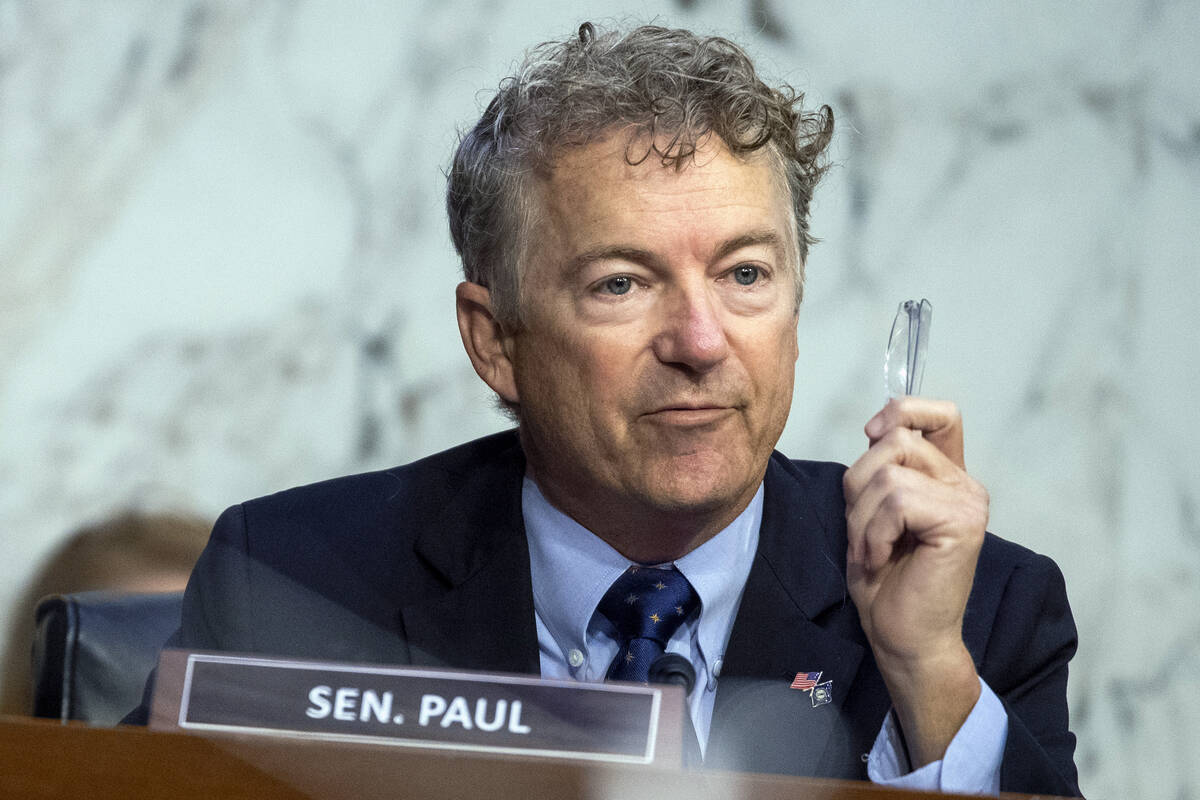EDITORIAL: Dithering won’t fix the budget deficit
Sometimes the lonely battles are vitally important. Just look at Sen. Rand Paul’s tireless fight for fiscal responsibility.
Four years ago, the Kentucky Republican introduced a plan to balance the federal budget. He called it the “Penny Plan,” because it would have cut spending by 1 percent annually for five years. That would have led to a balanced budget by 2023.
“Rather than holding hands and agreeing to the common gluttony this plan requires Congress to do the opposite: hold hands and sacrifice for the common good,” Mr. Paul wrote at the time.
He warned his colleagues that failing to curb deficit spending would lead to rising inflation. The Senate gave little heed to his warning. It voted down his proposal with only 21 senators in support.
At the time, high inflation seemed like an impossibility. Now — in large part due to unrestrained federal spending — it’s a sobering reality.
To curb inflation, the Federal Reserve is increasing interest rates. While necessary, that will add substantial costs to repaying the interest on the national debt. The Congressional Budget Office’s latest budgetary baseline shows interest payments tripling between now and 2032. If rates increase more than projected, trillions will go simply to paying off the interest on the debt.
One would hope these realities would make members of Congress more receptive to the need to cut back on federal largesse. Unfortunately, that’s only wishful thinking at this point.
Earlier this month, Mr. Paul pitched another plan to balance the budget. This one would have required cutting six cents from every dollar in the budget until Fiscal Year 2027, among other things. The longer Congress deals getting its fiscal house in order, the more dramatic the eventual cutbacks will be. Mr. Paul’s plan would have balanced the budget in five years.
“Washington’s addiction to spending is hurting our economy and depleting our currency. Inflation is stealing every American’s purchasing power and financial security,” Paul said in a statement. “All this plan does is return to 2019 spending levels. If the federal government spent at 2019 levels this year, we would have a $388 billion surplus.”
The federal government was far from austerity in 2019. But the Senate voted down his plan, 29 to 67.
With voters up in arms about inflation and an election just months away, many politicians will claim they want to fight inflation. It shouldn’t be hard to see the link between reckless spending and inflation, either. Yet, not even a third of Senators were willing to vote for a plan to fix it.
That’s a depressing reality. Mr. Paul deserves credit for continuing to fight this important battle.




























